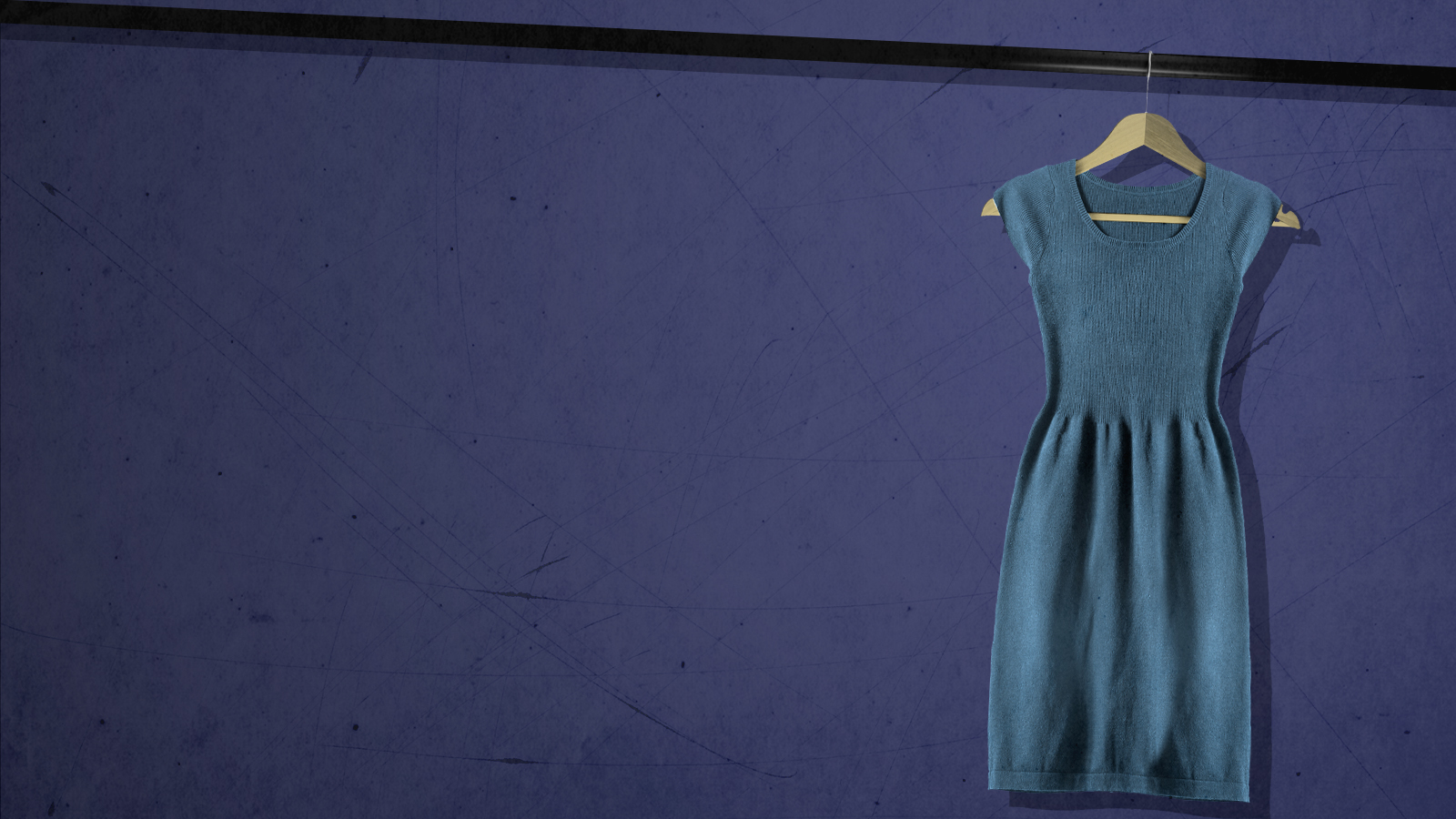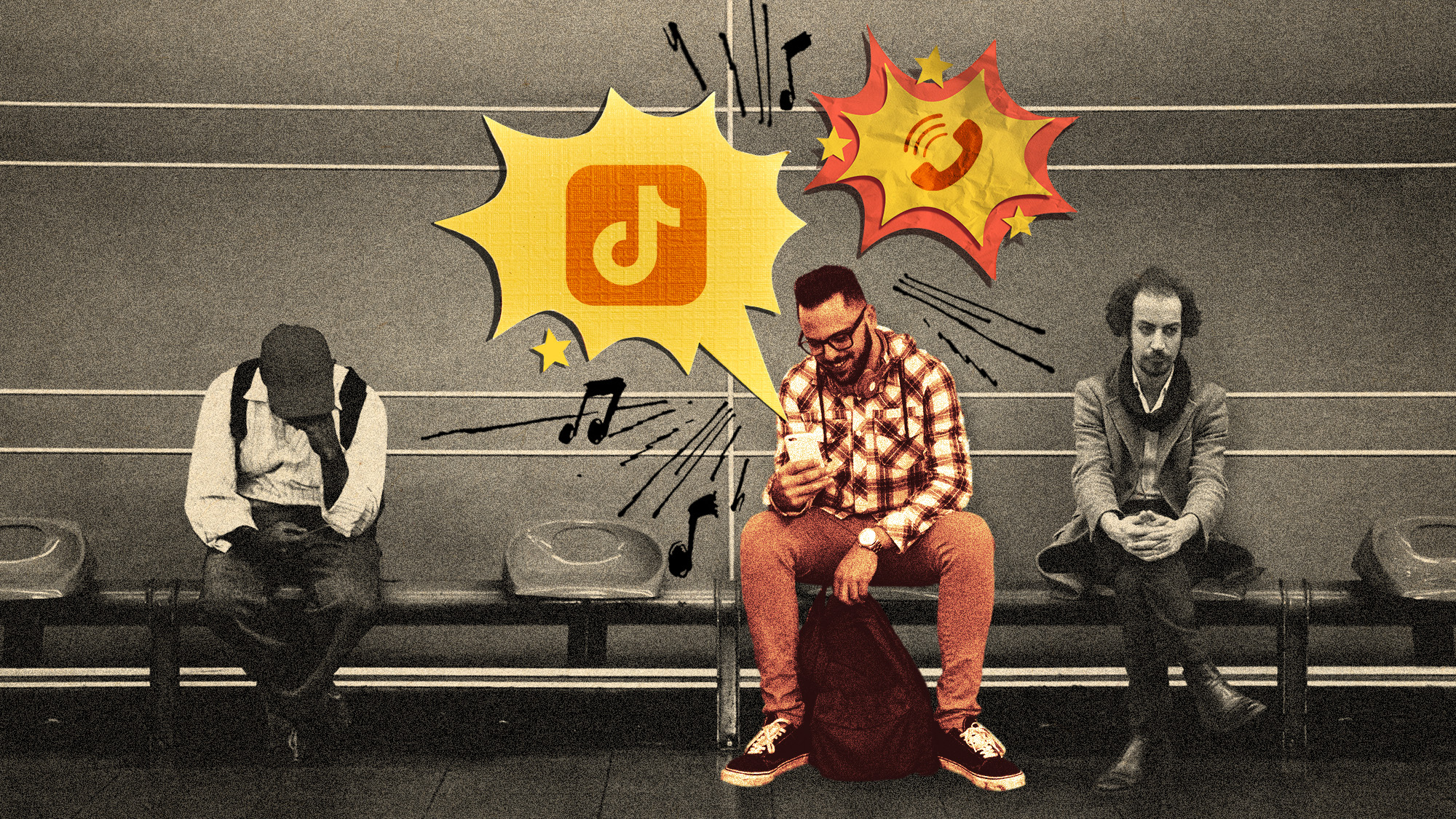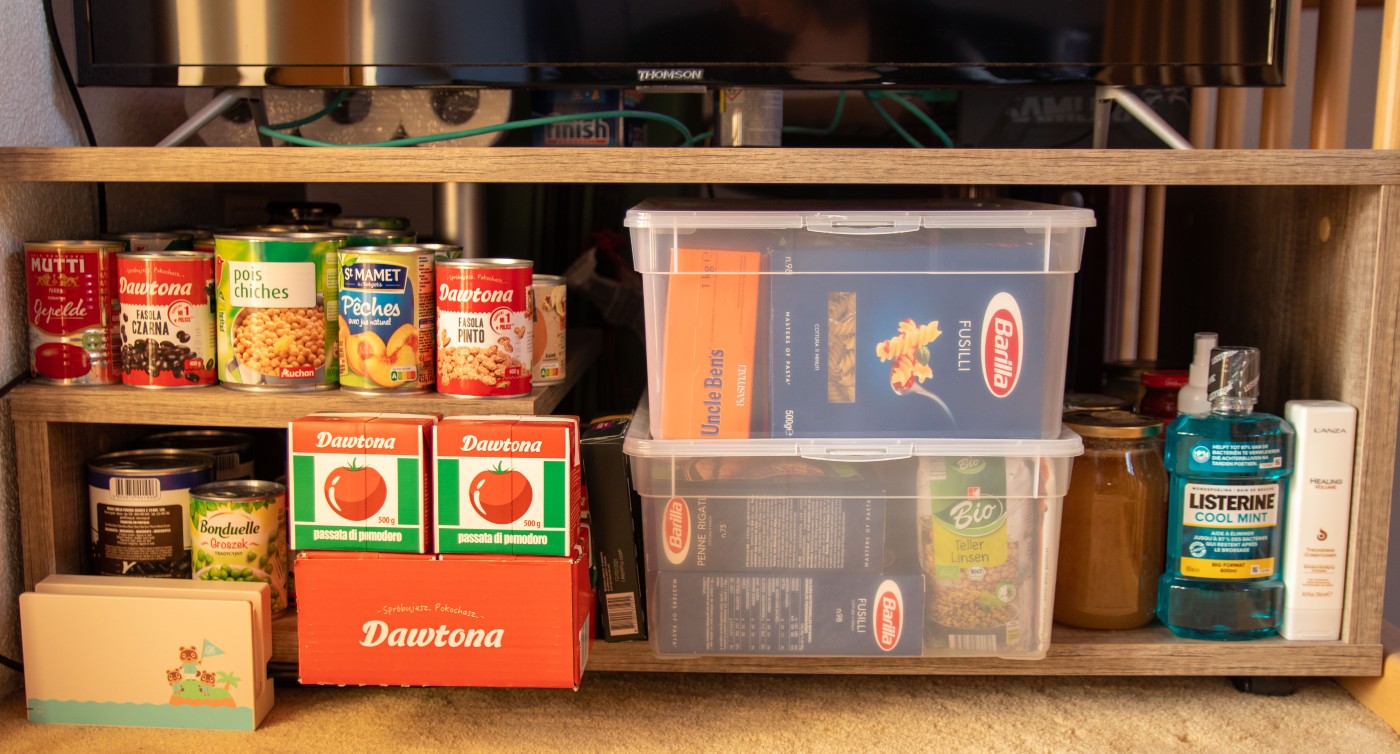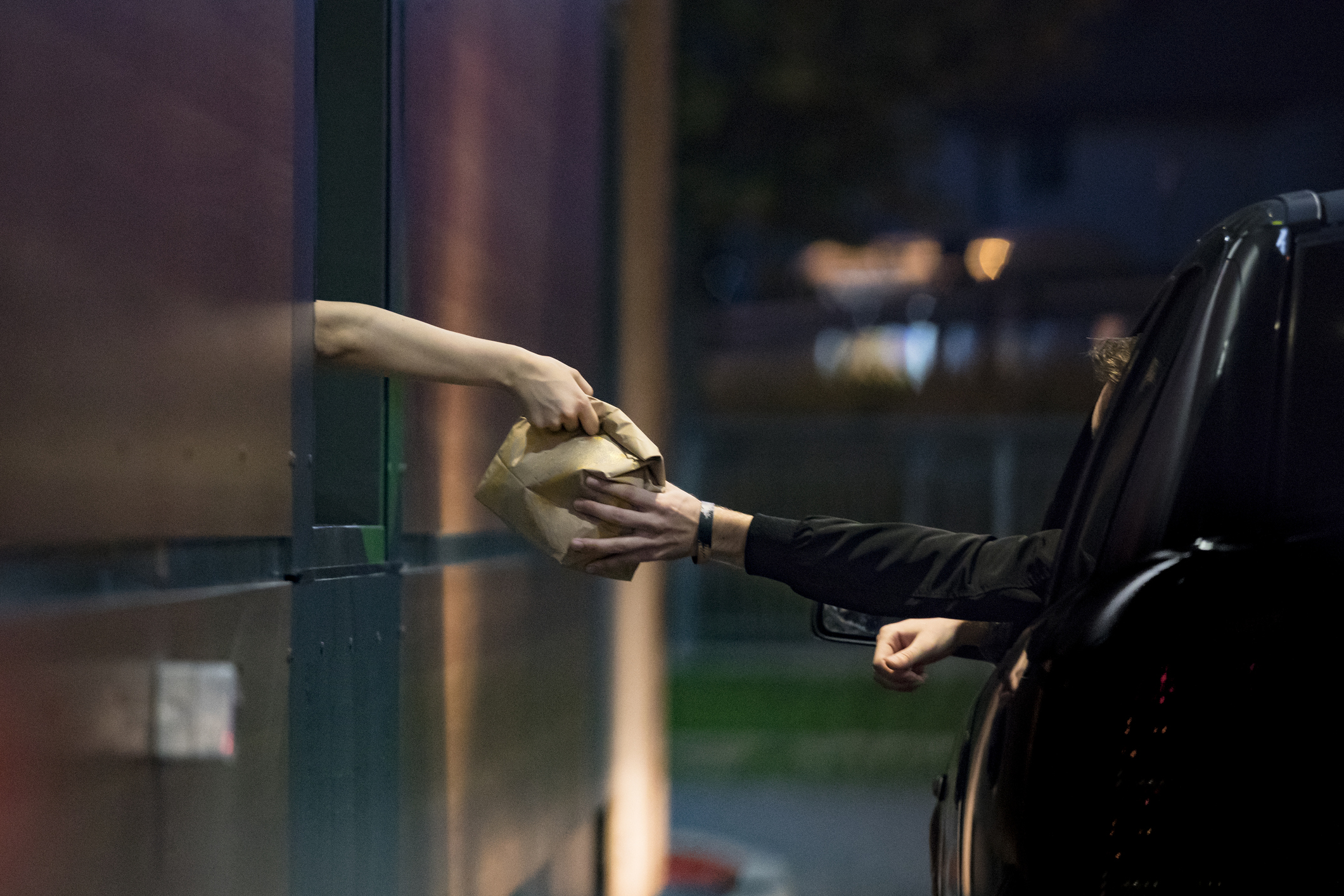The compromises we're no longer willing to make
There's a lot about our pre-pandemic lives that just no longer fits. Maybe that's a good thing.


A free daily email with the biggest news stories of the day – and the best features from TheWeek.com
You are now subscribed
Your newsletter sign-up was successful
I used to know how to dress for dates. Now that I'm regularly leaving the house again, I've been trying on the clothes that used to be my go-tos — outfits I thought were perfect for dinner and drinks with my husband, or a day out with friends. But like so many other people these days, I've hit a stumbling-block: Nothing fits.
The pandemic has written itself on my body. Though my clothing size seems to have stayed about the same, I've lost a lot of muscle tone from inactivity. My shape is softer now, less tolerant of things like tight sleeves and waistbands with buttons. After 14 months of going largely barefoot, my feet are flatter and harder to squeeze into fashionable shoes.
But I'm also noticing, and remembering, all the ways that these clothes never fit me in the first place. Tops that cling in the wrong places; pants that slide down off my waist and dig into my belly; shoes that rub my feet raw. For most of my clothing-purchasing life, I accepted this as a necessary evil: that I would never find clothing to fit all parts of me at once, and that I would always have to choose between comfort and style (if style was even an option for clothes in my size).
The Week
Escape your echo chamber. Get the facts behind the news, plus analysis from multiple perspectives.

Sign up for The Week's Free Newsletters
From our morning news briefing to a weekly Good News Newsletter, get the best of The Week delivered directly to your inbox.
From our morning news briefing to a weekly Good News Newsletter, get the best of The Week delivered directly to your inbox.
For the past year and a half, I've worn nothing but stretchy pants and T-shirts, plus the occasional garment I pandemic-hobby-sewed to my own measurements. I've gotten used to clothing that — however imperfect — doesn't restrict my movement or leave me in pain. As I try on my old pre-pandemic standbys, I'm finding myself less and less inclined to go back to the compromises that I used to think were part and parcel of choosing a wardrobe.
It'd be easy to say this is just about clothes, or even body image. But it feels more all-encompassing than that. The past year and a half has upended many of our collective and individual assumptions about life in America. What if the compromises we were conditioned to make for our pre-pandemic lives weren't as necessary or inevitable as we were led to believe?
Think of the bad-faith discourse around restaurant jobs and other low-wage service professions in the U.S. right now — the cries that "people don't want to return to work." Of course, this is disingenuous on many levels; for one thing, a huge number of restaurant staff aren't returning to work because they died of COVID-19. Others are grappling with the after-effects of illness and loss, of increased caregiving responsibilities, of trauma and burnout and so much else.
But even if we accept the premise that America's low-wage professionals are actively choosing to sit idle at home rather than return to gainful employment, what else did we expect? For those who have gotten a glimpse of what life might be like without the rigors and abuses of the typical American workplace, is it any wonder that they aren't as willing to make those compromises anymore?
A free daily email with the biggest news stories of the day – and the best features from TheWeek.com
I think about my closet of ill-fitting clothes, and about those disingenuous signs in restaurant windows, and about all the ways that Americans are realizing that our pre-pandemic lives don't fit us anymore. Some of these things are subtle: the pinch of a waistband designed for an illusory average body, the scream of an alarm clock heralding a long commute. And some — like the abuses of late-capitalist employment, or the inhumanity of our health-care system, or the background hum of mass gun violence and white-supremacist brutality — are sharp enough to draw blood.
We are in a strange limbo these days, between vaccines and variants, but also between past and future. Already the powers that be — our governments and corporations — are trying to rush many of us back to a "normal" that served few of us as well as it could. And, I have to admit, there's something appealing in that, in going back to what's familiar and good-enough. I've started wearing some of my old clothes again, even though I know they don't fit.
But I wonder whether, somewhere in there, we'll be able to hold onto the promise of better-fitting solutions. What would it look like to clothe ourselves without discomfort or shame? To tend to our physical and mental health without the threat of financial ruin? To work for a living without sacrificing our bodies, our relationships, our rich inner and outer lives? To live in a society that actively cares for its most vulnerable members, while reckoning with its ugliest legacies and impulses?
I don't know what it would take to achieve that future. Certainly, it won't be easy. It will require fighting like hell, at a time when many of us have so little fight left in us. But as we move forward into the next phase of the pandemic — because it is far from over — I hope that we will be able to remember those glimpses in the mirror, and to envision a collective American life that suits us rather than the other way around.
Zoe Fenson is a freelance writer based in the San Francisco Bay Area. Her writing has appeared in Longreads, Narratively, The New Republic, and elsewhere. When she's not writing, you'll find her doing crossword puzzles in cocktail bars or playing fetch with her cat.
-
 Film reviews: ‘Send Help’ and ‘Private Life’
Film reviews: ‘Send Help’ and ‘Private Life’Feature An office doormat is stranded alone with her awful boss and a frazzled therapist turns amateur murder investigator
-
 Movies to watch in February
Movies to watch in Februarythe week recommends Time travelers, multiverse hoppers and an Iraqi parable highlight this month’s offerings during the depths of winter
-
 ICE’s facial scanning is the tip of the surveillance iceberg
ICE’s facial scanning is the tip of the surveillance icebergIN THE SPOTLIGHT Federal troops are increasingly turning to high-tech tracking tools that push the boundaries of personal privacy
-
 Book reviews: ‘We the People: A History of the U.S. Constitution’ and ‘Will There Ever Be Another You’
Book reviews: ‘We the People: A History of the U.S. Constitution’ and ‘Will There Ever Be Another You’Feature The many attempts to amend the U.S. Constitution and Patricia Lockwood’s struggle with long Covid
-
 Why Irish traditional music is having a moment
Why Irish traditional music is having a momentIn The Spotlight Frustrations with isolation and technology credited for reviving 'auld' trad tunes
-
 A not-so-quiet place: Why is no one using headphones in public anymore?
A not-so-quiet place: Why is no one using headphones in public anymore?Under the Radar People are increasingly comfortable with both speakerphone and watching videos (very) out loud
-
 Gas masks and loo rolls: why 'preppers' are on the rise
Gas masks and loo rolls: why 'preppers' are on the riseUnder The Radar Doomsday community has expanded from 'Rambo wannabes' to 'Tesco regulars'
-
 Breathtaking: the Covid drama that may make you scream
Breathtaking: the Covid drama that may make you screamThe Week Recommends ITV three-parter is a 'tour de force' that exposes 'political complacency'
-
 The lasting changes of the post-pandemic dining era
The lasting changes of the post-pandemic dining eraThe Explainer The newest of new normals
-
 How revenge travel is impacting the aviation and tourism industries
How revenge travel is impacting the aviation and tourism industriesTalking Point The surge in travel is a far cry from the previous pandemic years during which travel took a hit
-
 Virgin Atlantic fined for violating Iraqi airspace
Virgin Atlantic fined for violating Iraqi airspaceSpeed Read Airline said the incursions were accidental and caused by the Covid-19 pandemic
